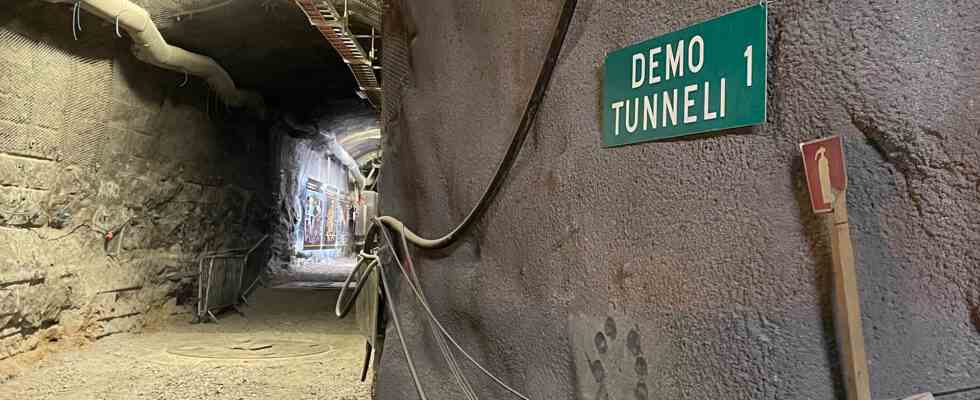world mirror
Status: 07/03/2022 11:23 a.m
The small town of Eurajoki in southern Finland is getting a repository for radioactive waste – the population supports it. People there are surprised at the debate being held in Germany.
The history of nuclear power began in Eurajoki over 40 years ago. Vesa Lakaniemi, the municipality’s head of administration, points to the pictures of his predecessors hanging in the hallway in front of his office. In the mid-1970s they agreed to the construction of the first nuclear power plant. Since then, the community, now home to 9,000 people, has become something of a nuclear flagship in Finland. “The trust between us and the nuclear power plant operators has been built up over decades. And the operator has always kept his word,” he says.
Trust. Lakaniemi uses this word again and again. It was the basis for the community agreeing with a large majority to have a repository very close by.
Onkalo, in English small cave, is what the Finns call their repository. It is also the workplace of Jyrki Liimatainen. The geologist takes that ARD-Team with underground. The radiant garbage is to be stored down here. Forever. “It’s going to start soon,” he says. “It will then take 120 years for the repository to be full.”
Finland: Repository in sight
Christian Blenker, ARD Stockholm, Weltspiegel, July 3, 2022
Teaching material for abroad
They get visitors down here from all over the world. Everyone wants to know how Finland did it.
The operator then always takes the visitors into a demonstration tunnel. Here, administrator Lakaniemi shows that the spent fuel rods will end up in round holes in the granite rock. A total of over 6000 tons of radioactive waste. Dumped in a huge underground labyrinth.
Stable temperatures and hard granite made the place safe. “Now we are about 430 meters deep,” he explains. “That’s quite enough for the coming ice ages. Not even permafrost would come down so deep then.”
Marvel at Germany
They also followed the repository discussion in Germany here. And often shaking his head. Like many Finns, Liimatainen has a pragmatic view of nuclear power and radioactive waste: “Anyone who benefits from electricity must also take responsibility for the waste. And that’s how it is in Finland. Anyone who uses nuclear power also has to pay for final storage with a surcharge .”
Estimated construction costs for the repository: 3.5 billion euros. At one third, nuclear power is an integral part of the Finnish energy mix. A small part also came from Russia. But Moscow stopped supplying electricity shortly after the country’s NATO application.
In the repository, it goes deep underground – the tunnels were driven hundreds of meters into the ground.
Russia’s reaction fizzles out
Lapeenranta is a town near the Finnish-Russian border. At the Technical University there is a whole department on nuclear safety. Juhani Hyvärinen directs it. The fact that Russia no longer supplies electricity can easily be compensated for with imports from Sweden, he says.
In terms of energy policy, Finland is better positioned than Germany, for example: “Our electricity system consists of controllable parts. This means we can always ensure that the people in Finland get electricity, regardless of what our neighbors do.”
Don’t worry about security
They also always dealt with the issue of final storage in a sober manner. Concerned about security? Not with him.
Finnish granite is even safe from attacks or sabotage. “When the fuel rods in the capsules are underground and the tunnels are closed again, they are safely stored there. The repository is deeper than any facility built for war. It will hold for sure!”
The spent fuel elements go into these shafts – the repository operators are firmly convinced of the safety.
A permanent job
An end to nuclear power is not in sight in Finland. This also makes Liimatainen’s job crisis-proof.
In three years, the first fuel rods are to be sunk here forever. “I’m looking forward to it when things finally get going here,” he says. “Then we proved something to the whole world.” However, only Finnish nuclear waste will end up in the repository. Other countries would have to do their own thing, says Liimatainen.
You can see this and other reports in Im Weltspiegel – on Sunday at 6.30 p.m. in the first.

